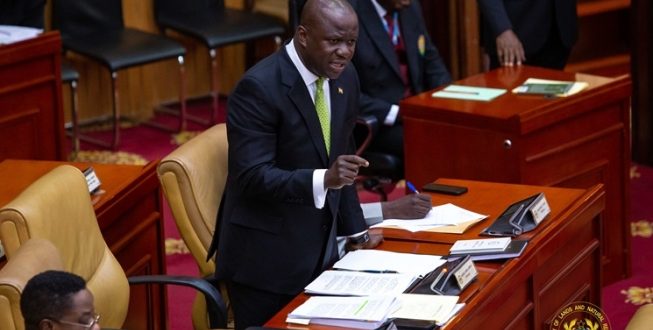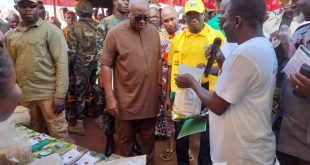Samuel Abdulai Jinapor, a member of parliament from Damongo, has expressed concern over the president’s assertion that he is cutting the size of government by only choosing 60 ministers and deputy ministers.
He claims that although this action has been portrayed as an efficiency boost, the government has only moved appointments to the President’s Office, leaving the public exchequer with the same financial load.
While the president is happy that there are fewer ministers, Jinapor noted that he has also increased the number of presidential advisors, staffers, and aides, many of whom have the same privileges as ministers but are not subject to parliamentary approval.
“The President is praising himself for appointing 60 Ministers, but what he has failed to tell us is that he has found a smart way of making up the numbers by appointing more and more people as Presidential Advisors and Staffers,” he said.
He contended that these appointees typically have the same status and privileges as ministers.
“The Chief of Staff is ranked just below the Speaker of Parliament but above a Cabinet Minister. Senior Presidential Advisors receive the same emoluments as Cabinet Ministers.
“Presidential Advisors are pegged at the same level as Cabinet Ministers who are not MPs, while Presidential Aides are treated as Deputy Ministers, with corresponding benefits.”
Since their responsibilities were merely transferred to the Office of the President, which has the same financial ramifications, he contended that the removal of these Ministries has not resulted in cost savings.
Mr. Jinapor pointed out that the Office of the President now has a growing number of high-ranking appointees, such as Dr. Valerie Sawyerr, a Senior Presidential Advisor on Government Affairs, and almost ten Presidential Advisors who cover a range of sectors, such as corruption, the economy, and diaspora affairs.
“There are also dozens of Presidential Staffers and Aides, assigned to specialised roles such as Economic Affairs, Special Aides to the President and Vice President, and regional operations.
“Notably, there is even a Director at the Presidency in charge of Agriculture and Agribusiness (Peter Boamah Otukonor), despite the existence of the Ministry of Food and Agriculture and the Ministry of Trade, Agribusiness, and Industry,” Jnapor added.
He pointed out that this trend points to a political accommodation approach in which a new Presidential Advisor or Staffer is appointed in tandem with each significant campaign pledge.
The former Lands Minister went on to point out that the President has appointed 16 Presidential Staffers, each of whom is assigned to a region, despite his insistence that he will not name Deputy Regional Ministers—a policy that was initially instituted by President Akufo-Addo.
“Are these individuals just Deputy Regional Ministers under a different title?” he asked.
Mr. Jinapor raised additional concerns regarding the Office of the President’s overburdened communications team by revealing that it currently consists of one Minister for Government Communications, one Presidential Advisor on Media, four Directors of Communication, five Deputy Directors of Communication, two Communication Specialists, five Technical Communication Assistants, one Media Aide, one Assistant Media Liaison Officer, and one Communications Consultant.
“What at all are they going to communicate?” said the former minister, who questioned the need for twenty-odd appointees with a communication focus.
In addition to worries about the size and expense of the government, Mr. Jinapor claimed that the president had broken important campaign promises.
According to him, the pledge to designate 30% of Cabinet Ministers as women is one significant unmet promise.
“If you can’t keep the campaign promise, just let the Ghanaian people know and apologise to them,” he asserted.
“Don’t use the backdoor to appoint Ministers and Deputy Ministers who will not be subject to parliamentary approval.”
Samuel Jinapor came to the conclusion that although the President’s decision to restrict the number of ministers seems beneficial on the surface, the state’s financial burden has not changed.
Concerning accountability and transparency, the MP contended that moving responsibilities from Ministries to the Office of the President did not translate into cost savings.
The Ghanaian people would be keenly monitoring whether this reorganization actually fulfills its promise of efficiency or if it is just a case of repackaging existing systems under new names, he said, urging the government to be candid and forthright with them.
Source: Ghanatodayonline.com
 Ghanatodayonline.com News, Politics, Health, Education & More
Ghanatodayonline.com News, Politics, Health, Education & More




